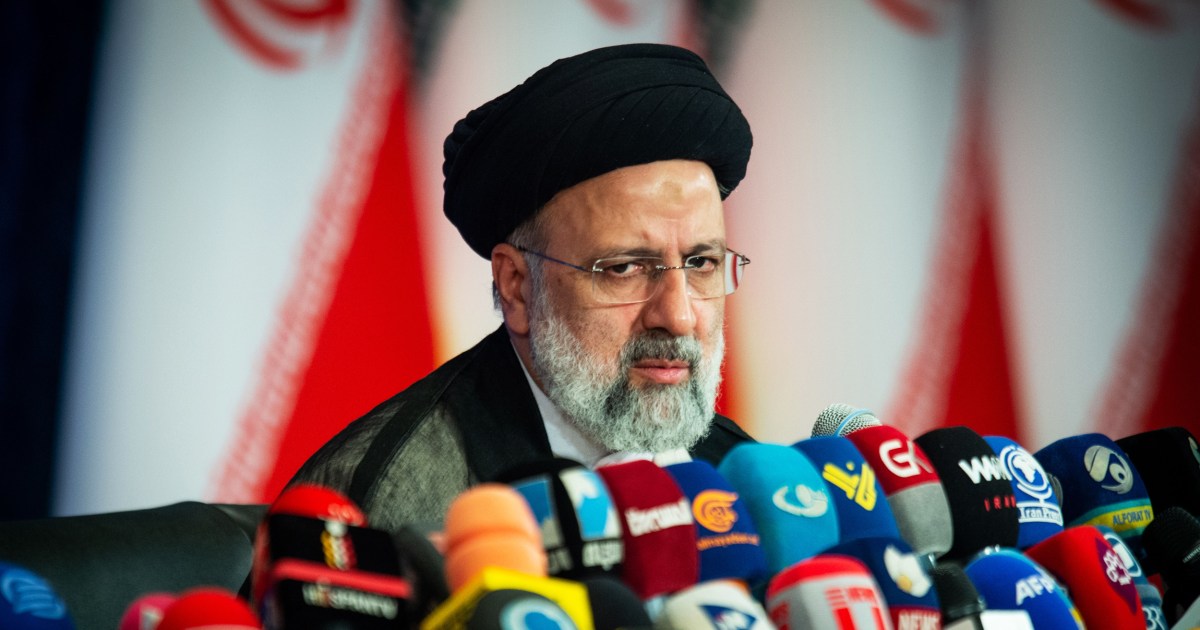Death of Iranian President Ebrahim Raisi: Reactions and Political Implications
Iranian President Ebrahim Raisi and Foreign Minister Hossein Amir-Abdollahian were killed in a helicopter crash near the Azerbaijani border. This tragic event has elicited mixed reactions, uncovering deep political divisions within Iran. While some mourn Raisi's death, others celebrate his demise, highlighting the contentious legacy of a leader known for his hardline policies and repressive measures.
Raisi's death has stirred a tempest of emotions across Iran. In central Tehran, a significant crowd gathered in Vali-e-Asr square, displaying a range of reactions from visible distress to prayerful mourning. Videos and photos circulated online showing citizens setting off fireworks and dancing in the streets, revealing the depth of opposition to Raisi's administration. Known as the 'butcher of Tehran,' Raisi oversaw the execution of thousands of political prisoners in 1988, earning him a notorious reputation.
International and Domestic Reactions
The international community has responded with condolences. Indian Prime Minister Narendra Modi and Pakistani Prime Minister Shehbaz Sharif expressed their shock and sadness. Additionally, leaders from Hamas, Hezbollah, and the Houthi rebels in Yemen extended their sympathies. However, contrasting reactions were noted on social media, with some Iranians using platforms like X to celebrate the death of a leader they viewed as a tyrant.
Speculations about the incident have arisen, with some suspecting foul play. Although Israeli officials denied involvement, rumors of a Mossad assassination persist. The weather, technical defects, and potential sabotage are all under investigation. The aging and poorly maintained state of Iran's air force, hampered by international sanctions, adds another layer of complexity to the crash's causes.
Political Ramifications for Iran
This incident thrusts Iran into a potential political crisis. Supreme Leader Ali Khamenei declared five days of national mourning and transferred Raisi's duties to First Vice President Mohammad Mokhber, pending elections within 50 days. The loss of both Raisi and Amir-Abdollahian, especially given the latter's recent prominence amid escalating tensions with Israel, complicates the search for long-term leadership.
Raisi's administration was marred by criticism for its harsh policies, economic struggles, and civil rights violations. His crackdown on protests following the death of Mahsa Amini in police custody escalated tensions. Thousands were detained, and numerous lives were lost. The government's insistence on enforcing the mandatory headscarf has further strained public sentiment.
As Iran navigates this turbulent period, the legacy of Raisi and his impact on the country's political landscape remain points of contention. The coming elections will be pivotal in determining the future direction of the nation's leadership amid ongoing regional and domestic challenges.
- Raisi's brief presidency, starting in 2021, saw the rise of conservative politics and increased suppression of dissent. His tenure drew sharp criticism for the handling of widespread protests, notably following Mahsa Amini's death. Raisi's administration detained thousands and was responsible for numerous deaths, leading to public executions in some cases.
- Social media reactions from within and outside Iran showcased a divided sentiment. While supporters of the regime held prayers and demonstrations mourning his loss, opponents expressed their relief and joy unabashedly.
- Investigations into the helicopter crash are ongoing, with no definitive causes determined. The incident's complexity is heightened by the deteriorating condition of Iran's aviation fleet, heavily impacted by international sanctions limiting access to vital parts and maintenance.
- The international responses reflect the geopolitical implications of Raisi's death. As Iran grapples with leadership transitions and internal strife, the global community watches closely, anticipating potential shifts in Iran's foreign and domestic policies.






